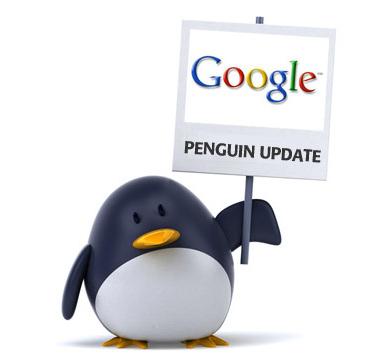In the wake of the latest Google Penguin update the SEO world was hit with a slight panic. This was mostly in response to penalties that Google handed out in varying degrees as a result of what they had re-defined as poor SEO techniques. Some websites lost a few keyword rankings, while others got entire pages completely de-indexed from the site. Regardless of the penalty, fear struck in the hearts of fellow SEOers alike at the wonder of what component of their SEO strategy had warranted a penalty. In their misguided fear, many companies have responded with taking whole websites down, starting from scratch while others have disavowed links they had built up over the years. The extremity of responses often paralleled the extent of the penalty incurred.
What is evident through the penalties is that Google is striving to reward and favor genuinely good content. Google’s algorithm is trying to diminish the black hat SEO tricks that have been boosting low quality sites in the past.
So what are some things to avoid doing in the aftermath of Google’s latest algorithm update?
- Keywords Stuffing – Using descriptions as a keyword stuffing strategy without meaningful content or a call to actions is a risky tactic that has rendered many websites penalties.
- Keyword Rich URLs – You might be noticing a pattern here with the overuse of keywords. That’s to negate low quality content that was only structured to promote keywords instead of the relevance of a website to what a reader is searching for.
- Unnatural Links – Stay away from methods such as article spinning that might alert the bots of suspicious activity. A natural link profile of relevant, quality and varied links is the best way to go.
- Duplicate Content – This is one of the fastest ways to get your site in hot water. Try and create fresh and unique content for every page of your site.
- Unnecessary Pages – Despite popular belief, having more pages does not always tell the search engines that it’s a quality website. If it is indeed unique content that people will want to read on every page, do so. But having a series of redundant pages can get you in hot water otherwise.
In the end, the thing that will sustain you in good standing with Google is offering quality, sharable content that provides a good user-experience for those visiting your website.




Definetly agree: quality and ‘non-made-for links’ content + useful and relevant links = you are on the safe side 🙂
Thanks for your comment!
Personally I have no sympathy with all the people who have tried to game the system for years. They messed up search results for everyone and deserve to be blacklisted.
I know some innocent webmasters were hit, too and do feel sorry for them of course.
Maybe it is time to just build websites and put the SEO people out of jobs
Thank you for your comment.
Very good article for SEO
Penguin updates bring a huge effect to SERP’s result .Black Hat SEO target by the updates and all spammers.So, the results and ranking particularly who are on the top page that affected by the update where need to fully recover.But the question is how?…
Thanks for the tips..